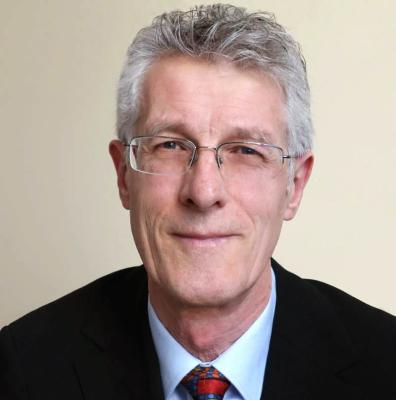‘Some investigations may never see the light of day’: public service watchdog seeks budget bump to dig through backlog

Canada’s public service integrity commissioner is facing a massive backlog in cases and insufficient funding, which she says jeopardizes her office’s ability to expose wrongdoing in the public service and to protect whistleblowers.
“We’re at five times our capacity, which means some investigations may never see the light of day,” Public Sector Integrity Commissioner Harriet Solloway said in an interview with The Hill Times. “It’s really rather discouraging.”
The office was established in 2007 under the Public Servants Disclosure Protection Act, and investigates and exposes major wrongdoing within the federal public service. It also investigates complaints of reprisal against whistleblowers in the public service.
Solloway says her office has been working hard to dig out from under a mountain of backlogged cases, but more keep coming in. Holloway said her office analyzed 56 cases this past June alone, but received 68 new cases during the same month.
Without the budget to hire more analysts, investigators, and lawyers, current staff must take on more cases, meaning there’s less time to dedicate to each file, she said. One case may include multiple allegations, and each must be investigated. On top of that, about 40 per cent of cases are located outside the National Capital Region, meaning the office incurs travel expenses.
According to the 2025-26 main estimates, the office has a budget of $7.9-million, a 23-per-cent increase from the prior year’s estimates to date of $6.4-million. The departmental plan forecasts the office’s spending will remain around $8-million into 2027-28, but includes a caveat that these allocated funds will be insufficient.
“The current allocation will be used to the maximum of about $7,953,550 yearly. Additional funds will be requested. Trend analyses demonstrate that the allocated funds will be insufficient to enable the full implementation of the Office’s statutory mandate,” the plan says. Since Prime Minister Mark Carney’s (Nepean, Ont.) government has yet to release its budget for the current fiscal year, it’s possible the office could receive more cash through that funding mechanism.
Last year, the office received 348 disclosures of wrongdoing, and had a backlog of 102 cases reported the year prior. The office analyzed 250 of those cases, and determined 11 of them were within its mandate. Of those files, one was a “founded” case of wrongdoing.
Solloway’s office determined a member of the Parole Board of Canada repeatedly harassed four women in its Kingston, Ont., office over the course of several years, and that the Parole Board’s lack of action on the matter “amounted to gross mismanagement and created a substantial and specific danger to the health and safety of public servants” in the department.

As for retaliation against whistleblowers, 89 complaints were made last year, on top of 22 cases from the year prior. Of those complaints, 93 were analyzed, 26 investigations were launched, two files were settled through conciliation, and one was sent to the Public Servants Disclosure Protection Tribunal.
While the office continues to receive a flood of complaints alleging wrongdoing, Solloway says there’s no indication that integrity is degrading in the public service.
“I think there’s more awareness, and that’s why people are coming to us,” she said.
The office’s annual report says the office analyzed 19 per cent more cases related to wrongdoing and reprisals in 2024-25 compared to the previous year.
“In any other year, this level of productivity would have dealt with all submissions, as well as any backlog that might have existed,” the plan says. But due to the increased number of submissions, the office continues to accumulate a backlog.
Solloway said her team has been looking for ways to work efficiently and increase productivity, but without a boost to its budget, the office risks not being able to fulfil its mandate.
“Delays in investigations and reporting wrongdoing to Parliament continue to mount, as do investigations into complaints of reprisal against whistleblowers,” the report reads. “As time passes, investigations become more challenging as evidence and memories fade, while wrongdoing and reprisal continue to occur without consequence. This impacts confidence in the public sector, as well as impacting individuals directly involved in files including those who have suffered reprisal and those who may be living under the cloud of an accusation investigation and who may not be guilty of wrongdoing.”
Last year, Solloway requested an immediate funding boost of $1.3-million. She says that request sat before the Treasury Board for months before the office eventually received significantly less than she requested.
“It was a number of months where, basically, to the external eye, nothing happened, because we have no visibility on what is happening once submitted,” Solloway said.
Solloway also said the office should be funded through Parliament, not through the Treasury Board since its mandate is to investigate wrongdoing within the public service. The Treasury Board serves as the employer for the federal bureaucracy.
“I’m not casting aspersions on the good faith or competence of anybody in any position,” she said. “But as a matter of form, in my view, it runs the risk of diminishing the perception of our independence.”
Other offices, such as the Parliamentary Budget Office, are funded directly through Parliament, Solloway said.
Treasury Board spokesperson Rola Salem said via email that there is a standard process for increasing the operating budgets of all federal organizations.
“The government reviews these requests carefully, in a neutral and objective manner, to ensure that organizations, including Agents of Parliament, can continue to fulfil their mandates effectively and efficiently,” Salem said. “This process is a cabinet confidence, but budgets are subject to parliamentary approval through the estimates process.”
Salem noted the budget of the Office of the Public Sector Integrity Commissioner was increased in 2024-25, and again in 2025-26.
Additionally, “to protect their independence,” the office was exempt from belt-tightening as laid out in the 2023 and 2024 federal budgets, Salem said. It was also excluded from the ongoing government-wide spending review, in which Finance Minister François-Philippe Champagne (Saint-Maurice–Champlain, Que.) has directed most departments in the federal government to reduce spending by 15 per cent over the next three years.
Issues larger than lack of funding: advocate

Whistleblower advocate David Hutton says the office’s problems are far greater than a lack of funding, though.
“If we gave [Solloway] millions of dollars, there would virtually be no difference,” said Hutton, a senior fellow with the Centre for Free Expression at Toronto Metropolitan University. “Other problems need to be solved.”
Those problems include loophole-filled legislation, he said, as the Public Servants Disclosure Protection Act doesn’t include a reverse burden of proof, which requires employer to prove they haven’t taken reprisal against whistleblowers.
“Straight away, you look at that and say, ‘that’s a fake law,'” he said. “Reverse onus is not a new idea. When law was written we already knew you needed to have it.”
Canada is known internationally as the Enron or Titanic of public-sector whistleblowing, he said, with weak laws coupled with a commissioner’s office that has historically not protected whistleblowers, and has “never nipped a real scandal in the bud.”
Since the office’s inception, more than 5,500 whistleblowers have come forward with reports of suspected wrongdoing, and more than 550 have subsequently lodged formal complaints of reprisal, he said. Of them, only 11 whistleblowers have been allowed access to the tribunal, which is the only body that can award them compensation.
“It’s a badly written law, and an office that—for most of its history—has been led by career bureaucrats who absolutely do not want to find out anything that will embarrass the government, and view whistleblowers as troublemakers,” he said.
Hutton cited the office being tipped off about the Phoenix pay system fiasco before it was launched, and not investigating further. The system was initially billed as a cost-saver, but since its rollout in 2016, it has so far cost more than $5.1-billion, and resulted in thousands of paycheque problems for public servants.
Solloway has “got the right attitude,” but has “a mountain to climb” in the face of ineffective legislation, Hutton said, along with “an absolutely ridiculous lack of resources.”
“Canada is a wasteland for whistleblowers,” he said. “And we have to tell that to everyone who comes to us, so they understand what they’re getting into.”
mglass@hilltimes.com
The Hill Times






 LICENSING
LICENSING PODCAST
PODCAST ALERTS
ALERTS













